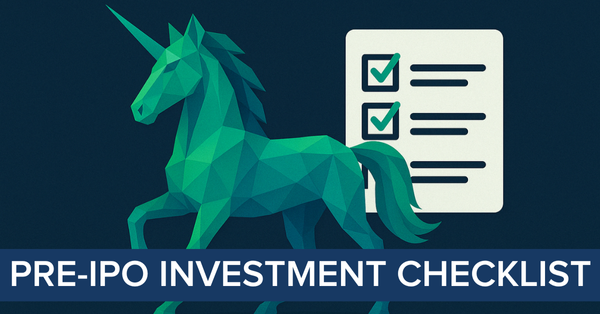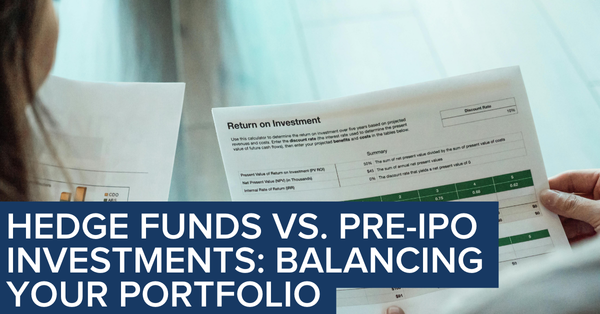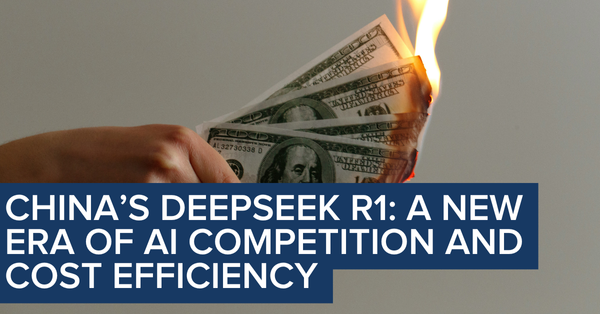15 Private AI Companies Driving Innovation (July 2024 with search trend data)

Artificial intelligence has rapidly evolved from a niche technology to a transformative force across industries. Along with OpenAI and Anthropic, several private companies have emerged as key innovators, significantly advancing AI capabilities and applications. These organizations are not only developing cutting-edge technologies but are also shaping how businesses and individuals interact with AI on a daily basis.
The impact of these companies extends beyond technological advancements. They're influencing economic trends, reshaping job markets, and raising important questions about ethics and governance in AI. These firms are at the forefront of AI's most promising and challenging frontiers, from natural language processing and computer vision to specialized AI chips and cloud infrastructure.
This article profiles 15 highly influential AI-focused private companies currently making significant strides in the industry. For each company, we provide:
- A concise summary of their core business
- An analysis of their popularity and impact in the AI landscape
- A notable fact about the company, its founders, or its technology
We've incorporated data on recent trends in user searches related to these companies and their technologies. This information offers valuable insights into which AI innovations are gaining traction and potentially moving towards wider adoption. For example, the race between ChatGPT and Anthropic’s Claude chatbot offerings.
By examining these companies and the technologies they're developing, we aim to provide a snapshot overview of the current state of AI innovation in the summer of 2024.
Note on interpreting search trend data charts: The charts below represent the total monthly searches for each company brand term or related keyword, e.g., ChatGPT or Claude, to give readers an idea of how popular these companies are and what direction they are trending as far as adoption and awareness. Data, when available, is presented monthly from Jan 2021 through June 2024.
1. Anthropic
Summary: Anthropic is focused on developing safe and ethical AI systems, particularly large language models. They are focused on enterprise deployments but also have a consumer-facing chatbot competitor to ChatGPT, called Claude.
Why it's popular: Anthropic's commitment to AI safety and its development of advanced language models like Claude has garnered significant attention in the tech world. Their newest model, Claude Sonnet 3.5 has performed better than ChatGPT at many tasks leading some to claim Anthropic is the current leader:
- Why Claude 3.5 Sonnet is the AI to Watch, Not ChatGPT-4o (Techopedia)
- Here’s how Claude 3.5 Sonnet and GPT-4o stack up in a direct comparison (DigitalTrends)
Fact: Anthropic was founded by former OpenAI researchers. Indeed, CEO Dario Amodei was instrumental in developing earlier versions of ChatGPT.
2. OpenAI
Summary: OpenAI is a research leader known best for its series of ChatGPT LLMs that have driven AI adoption.
Why it's popular: OpenAI created ChatGPT, which became a global sensation and brought conversational AI into the mainstream.
Fact: Despite its name and original mission, OpenAI transitioned from a non-profit to a "capped-profit" company in 2019 to attract more capital. The company is led by Sam Altman.
3. Groq
Summary: Groq is a semiconductor company that designs chips specifically optimized for machine learning workloads. Specifically, inference the generative part of AI, e.g., chatbots, that most users interact with. They do not make chips optimized for training AI models at this time.
Why it's popular: Groq's innovative chip designs promise to significantly speed up AI computations, potentially revolutionizing AI development.
Fact: Groq's LPU (Language Processing Unit) is currently one of the fastest AI inference chips in the world.
4. CoreWeave
Summary: CoreWeave provides specialized cloud infrastructure optimized for compute-intensive tasks, particularly in AI and machine learning.
Why it's popular: CoreWeave's focus on high-performance computing for AI workloads has made it a go-to provider for many AI startups and researchers.
Fact: CoreWeave started as a cryptocurrency mining operation before pivoting to AI-focused cloud services.
5. Hugging Face
Summary: Hugging Face is a platform and community that facilitates the sharing and collaboration of machine learning models and datasets.
Why it's popular: Its user-friendly interface and vast repository of pre-trained models have made it an essential resource for AI developers worldwide.
Fact: Hugging Face's models library has become one of the most popular open-source libraries in the AI community, with over 100,000 GitHub stars and over 750,000 models.
6. LlamaIndex
Summary: LlamaIndex provides tools and frameworks for building applications with large language models, focusing on data integration and retrieval.
Why it's popular: LlamaIndex simplifies connecting large language models with external data sources, making it easier to create custom AI applications using RAG (Retrieval Augmented Generation).
Fact: LlamaIndex, originally called GPT Index, was created by Jerry Liu in late 2022 and quickly gained popularity in the AI developer community.
7. LangChain
Summary: LangChain is a framework for developing applications powered by language models, emphasizing composability and flexibility.
Why it's popular: LangChain's modular approach allows developers to easily create complex AI applications by combining different components.
Fact: LangChain was created by Harrison Chase, a former software engineer at Goldman Sachs, and has quickly become one of the most starred AI repositories on GitHub.
8. Cohere
Summary: Cohere provides natural language processing APIs that allow businesses to integrate advanced language AI into their products and services.
Why it's popular: Cohere's easy-to-use APIs and focus on practical business applications have made it attractive to companies looking to implement AI solutions. Cohere competes directly with OpenAI and Anthropic along with other large LLM research firms.
Fact: Cohere was founded by former Google Brain researchers and has partnerships with companies like Shopify and Jasper. Their focus is enterprise, specifically protecting valuable enterprise data while leveraging it for LLM use and retrieval.
9. Stability AI
Summary: Stability AI is known for developing open-source generative AI models, particularly in the realm of image generation.
Why it's popular: The company's release of Stable Diffusion, a powerful open-source image generation model, disrupted the AI art scene and sparked widespread adoption.
Fact: Stability AI raised $101 million in its seed funding round, one of the largest seed rounds for an AI company.
10. Adept AI
Summary: Adept AI is building AI models that can interact with existing software interfaces, aiming to automate complex workflows.
Why it's popular: Adept's approach of teaching AI to use software like a human could revolutionize how we interact with computers and automate tasks.
Fact: Adept was founded by former researchers from OpenAI, Google, and DeepMind, bringing together expertise from some of the world's leading AI labs.
11. Inflection AI
Summary: Inflection AI is developing AI systems for personal assistance and human-AI interaction, with a focus on creating more natural and helpful AI companions.
Why it's popular: The company's ambitious goal of creating AI that can understand and interact with humans in more nuanced ways has garnered significant interest.
Fact: Inflection AI was co-founded by DeepMind co-founder Mustafa Suleyman and LinkedIn co-founder Reid Hoffman.
12. Runway
Summary: Runway creates AI-powered tools for content creation and editing, particularly in the realms of video and image manipulation.
Why it's popular: Runway's intuitive tools have made advanced AI capabilities accessible to creatives and content producers, revolutionizing the media production process.
Fact: Runway's AI technology was used in the production of the Oscar-winning film "Everything Everywhere All at Once."
13. Scale AI
Summary: Scale AI provides data annotation and labeling services crucial for training machine learning models across various industries.
Why it's popular: As AI systems require vast amounts of labeled data, Scale AI's services have become essential for many companies developing AI technologies.
Fact: Scale AI was founded by Alexandr Wang when he was just 19 years old, making him one of the youngest tech CEOs in Silicon Valley.
14. Midjourney
Summary: Midjourney is an independent research lab that produces an AI-powered tool for generating images from text descriptions.
Why it's popular: Midjourney's image generation capabilities have impressed both artists and technologists, leading to widespread adoption and viral social media posts.
Fact: Unlike many AI startups, Midjourney is entirely self-funded and became profitable within its first year of operation.
15. Databricks
Summary: Databricks offers a unified data and analytics platform incorporating strong AI and machine learning capabilities for big data processing and analysis.
Why it's popular: Databricks' platform simplifies the process of implementing AI and machine learning in large-scale data operations, making it valuable for enterprises.
Fact: Databricks was founded by the original creators of Apache Spark, a powerful open-source data processing engine.
Conclusion
These 15 companies represent the cutting edge of AI technology, each contributing unique innovations to the field. While it is impossible to make a complete list, this overview ranges from language models and image generation to AI chips and data processing. Many of these companies are shaping the future of artificial intelligence and its applications across industries.
If you’re interested in investing in any AI companies, please create a free UpMarket account, check our current offerings, or contact our investor relations team. We’ve helped accredited investors invest in Anthropic, OpenAI, Groq, CoreWeave, SpaceX, and many other innovative companies.
Disclaimer: The information contained in this article is not investment advice; and does not constitute a recommendation to buy or sell any securities. The information within this article is meant for informational purposes only. Any statement in this document does not mean that the firm nor its employees agrees, endorses or approves any content of the document.
This article is only for knowledge sharing and does not constitute any investment advice. Anyone who makes an investment decision based on this article does so at their own risk. Any fund investment should be made through a formal confidential private placement memorandum and other fund documents. Potential investors should carefully read the risk factors in the private placement memorandum of securities issuance, and consult their own professional consultants if necessary, and receive advice on any investment, legal, tax or accounting issues. Past performance is not indicative of future performance, and the investment may potentially result in a loss of principal. The source and data of the material are considered to be reliable. However, there is no guarantee of its accuracy or completeness. The Company has no obligation to disclose or revise or modify this statement or any forward-looking statements as the circumstances change or as a result of subsequent events. Private equity funds are only suitable for specific qualified investors to subscribe. United States sales of the fund interests are exempt under Regulation D of the U.S. Securities Act of 1933, and are only applicable to potential investors who are eligible as "Qualified Investors" under Regulation D. Sales outside the United States are exempt under Regulation S of the U.S. Securities Act of 1933. Private equity funds are sold through Upmarket Securities LLC. Upmarket Securities LLC is a U.S. registered broker-dealer, and member of FINRA.
About UpMarket
UpMarket's mission is to unlock the private markets for individual investors.
We provide access to a range of asset classes and investment strategies that span private equity, hedge funds, crypto, real estate, and other alternative assets.
The problem
- A large barrier to entry due to high investment minimums
- Time-intensive because sourcing deals is a lot of work even if you’ve got a great network, and
- Costly because of investment-related diligence costs, paperwork, and legal fees
The solution
- Offering lower investment minimums
- Sourcing and conducting diligence on opportunities for investors, empowering them to pick and choose from pre-screened opportunities
- Making the investment process entirely digital, straightforward, and easy to manage from a single portal












